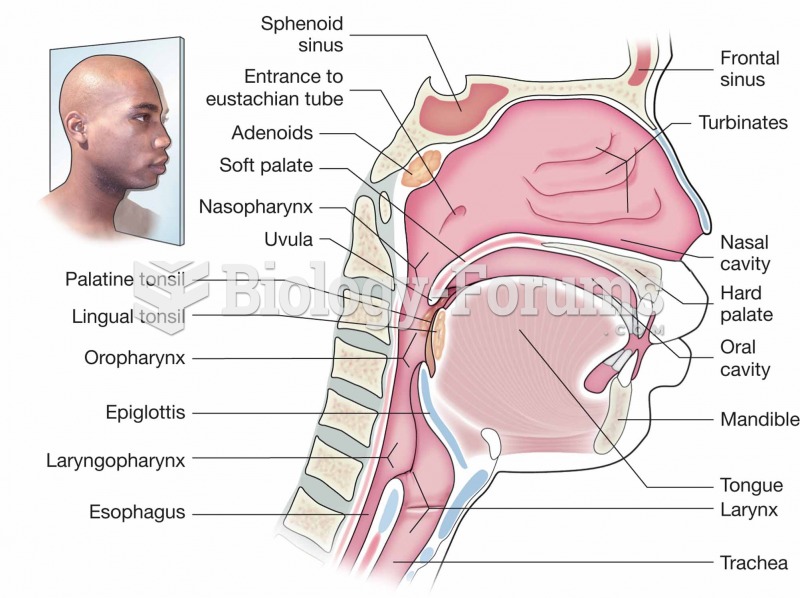|
|
|
Certain rare plants containing cyanide include apricot pits and a type of potato called cassava. Fortunately, only chronic or massive ingestion of any of these plants can lead to serious poisoning.
Though “Krazy Glue” or “Super Glue” has the ability to seal small wounds, it is not recommended for this purpose since it contains many substances that should not enter the body through the skin, and may be harmful.
The most destructive flu epidemic of all times in recorded history occurred in 1918, with approximately 20 million deaths worldwide.
In Eastern Europe and Russia, interferon is administered intranasally in varied doses for the common cold and influenza. It is claimed that this treatment can lower the risk of infection by as much as 60–70%.
Opium has influenced much of the world's most popular literature. The following authors were all opium users, of varying degrees: Lewis Carroll, Charles, Dickens, Arthur Conan Doyle, and Oscar Wilde.
 On the slopes of Chimborazo, a 6,310 m high volcanic peak in the Andes Mountains of Ecuador, Alexand
On the slopes of Chimborazo, a 6,310 m high volcanic peak in the Andes Mountains of Ecuador, Alexand
 Over the past four decades, the self-reported health of married men and women has remained high, ...
Over the past four decades, the self-reported health of married men and women has remained high, ...





